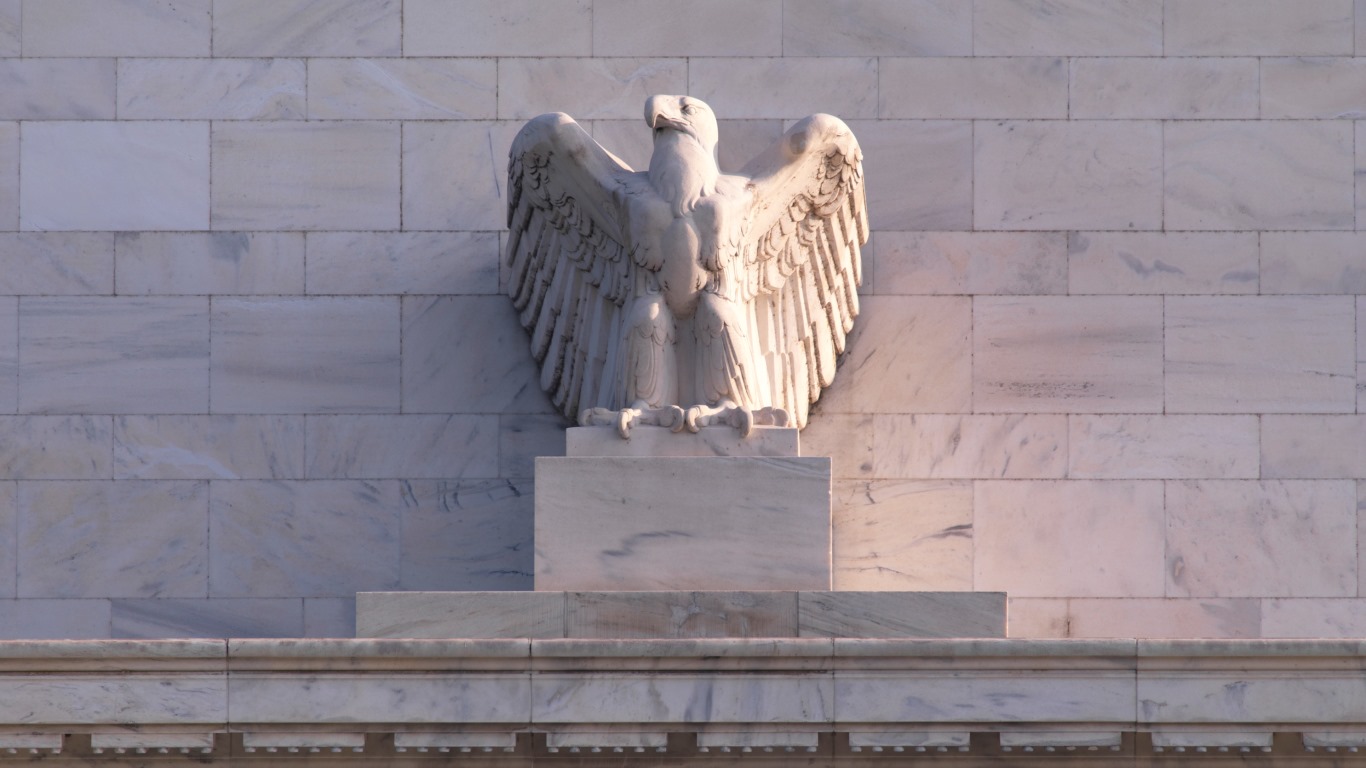Banking, finance, and taxes
Your Bank Probably Just Got A Very High Grade From The Government

Published:
Last Updated:

The Federal Reserve just issued its measure of the health of America’s major banks. The research is meant to show whether these 18 major bank holding companies can take a shock like the ones they suffered during The Great Recession. Each bank, which together makes up the huge majority of the U.S. banking system, got an impressive grade.
The Fed lists the banks in a survey known as the “Dodd-Frank Act Stress Test 2019: Supervisory Stress Test Results” as Bank of America Corporation; The Bank of New York Mellon Corporation; Barclays US LLC; Capital One Financial Corporation; Citigroup Inc.; Credit Suisse Holdings (USA) LLC; DB USA Corporation; The Goldman Sachs Group, Inc.; HSBC North America Holdings Inc.; JPMorgan Chase & Co.; Morgan Stanley; Northern Trust Corporation; The PNC Financial Services Group, Inc.; State Street Corporation; TD Group US Holdings LLC; UBS Americas Holdings LLC; U.S. Bancorp; Wells Fargo & Company, and DB USA Corporation, DWS USA Corporation.
Dodd-Frank is the name of a bill passed by Congress to regulate banks after the U.S. financial system nearly collapsed a decade ago. It was put into law on July 21, 2010. Congress was reacting to the fact that some banks were “too big to fail” which means that the government would need to bail them out to the tune of hundreds of billions of dollars, which indeed happened during the financial crisis. Congress wanted to make certain that, if one of the largest banks did fail, it would not bring down the entire financial system.
The standards of the test are based on a set of scenarios in which “a global recession with the U.S. unemployment rate rising by more than 6 percentage points to 10 percent, accompanied by a large decline in real estate prices and elevated stress in corporate loan markets.” Under this set of circumstances, the banks, as a group, would lose $410 billion.
All 18 banks passed the Federal Reserve test, which is not a hurdle all could make recently. The announcement speaks to the work done by bank boards and management to make their balance sheets capable of taking what was, until the financial crisis, as an unbelievable shock. It also speaks to the watchdog nature of the Fed.
As the results were announced, Vice Chairman Randal K. Quarles said, “The results confirm that our financial system remains resilient. The nation’s largest banks are significantly stronger than before the crisis and would be well-positioned to support the economy even after a severe shock.”
In short, any worry people had about the banking system can rest easy.
A financial advisor can help you understand the advantages and disadvantages of investment properties. Finding a qualified financial advisor doesn’t have to be hard. SmartAsset’s free tool matches you with up to three financial advisors who serve your area, and you can interview your advisor matches at no cost to decide which one is right for you. If you’re ready to find an advisor who can help you achieve your financial goals, get started now.
Investing in real estate can diversify your portfolio. But expanding your horizons may add additional costs. If you’re an investor looking to minimize expenses, consider checking out online brokerages. They often offer low investment fees, helping you maximize your profit.
Thank you for reading! Have some feedback for us?
Contact the 24/7 Wall St. editorial team.